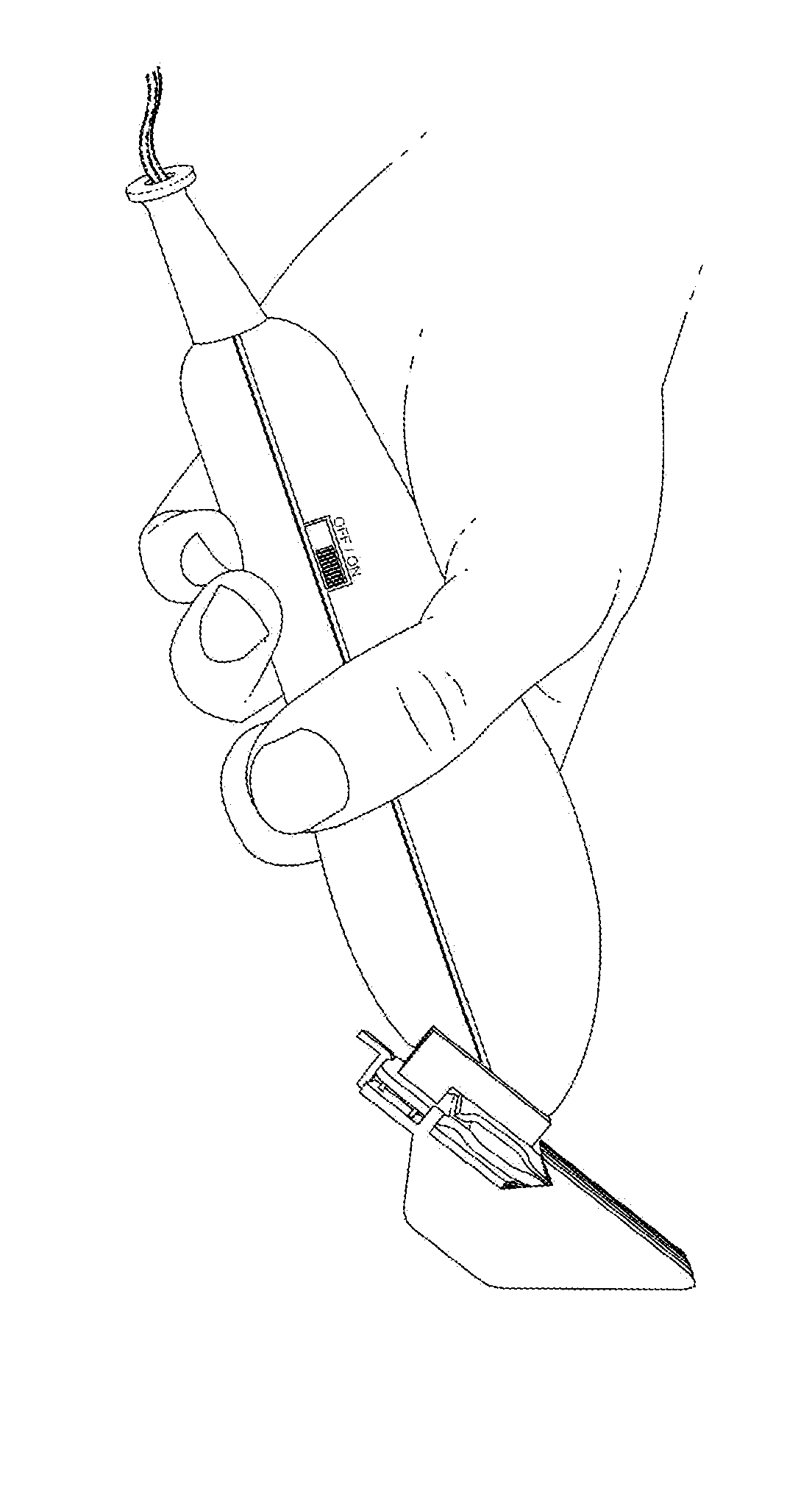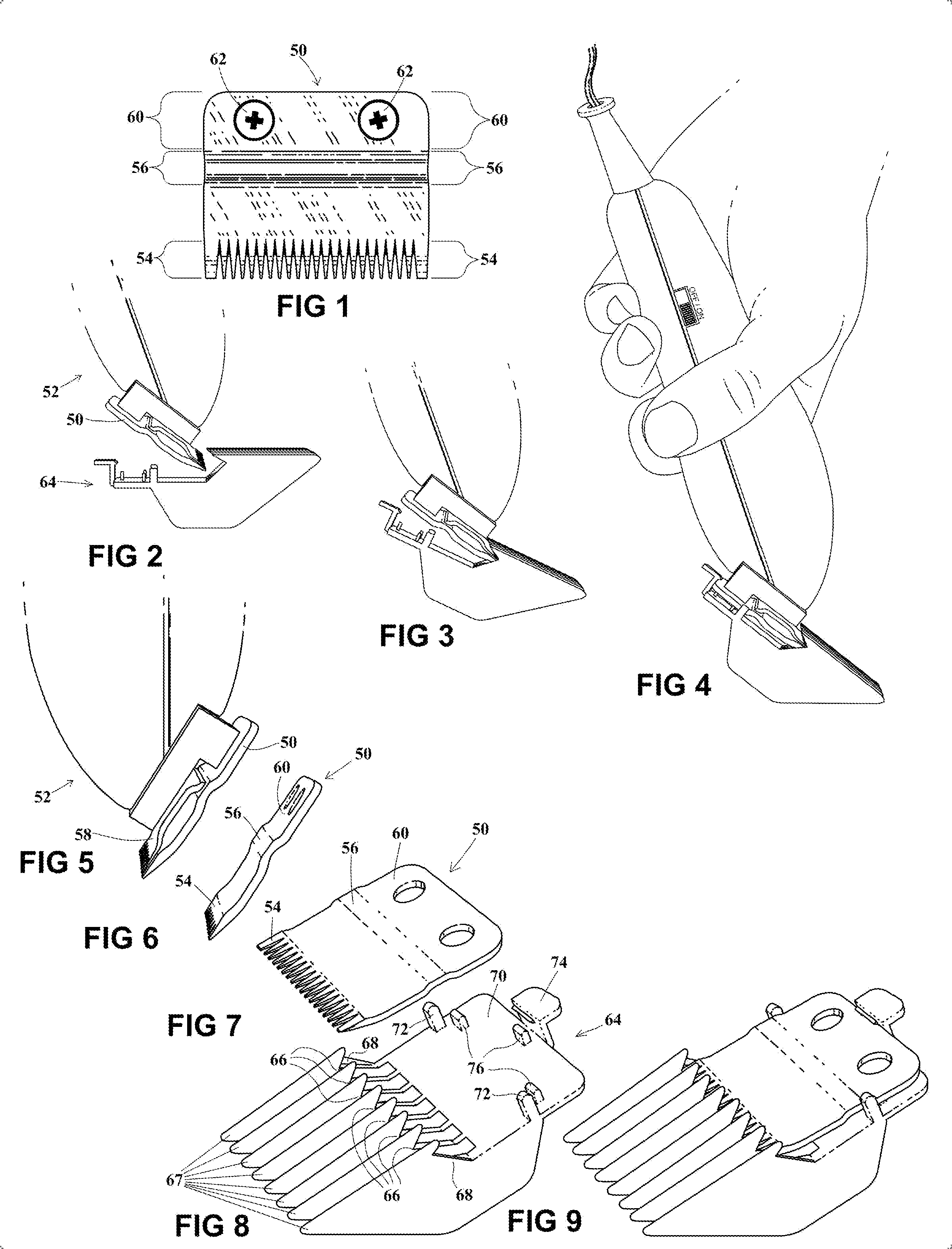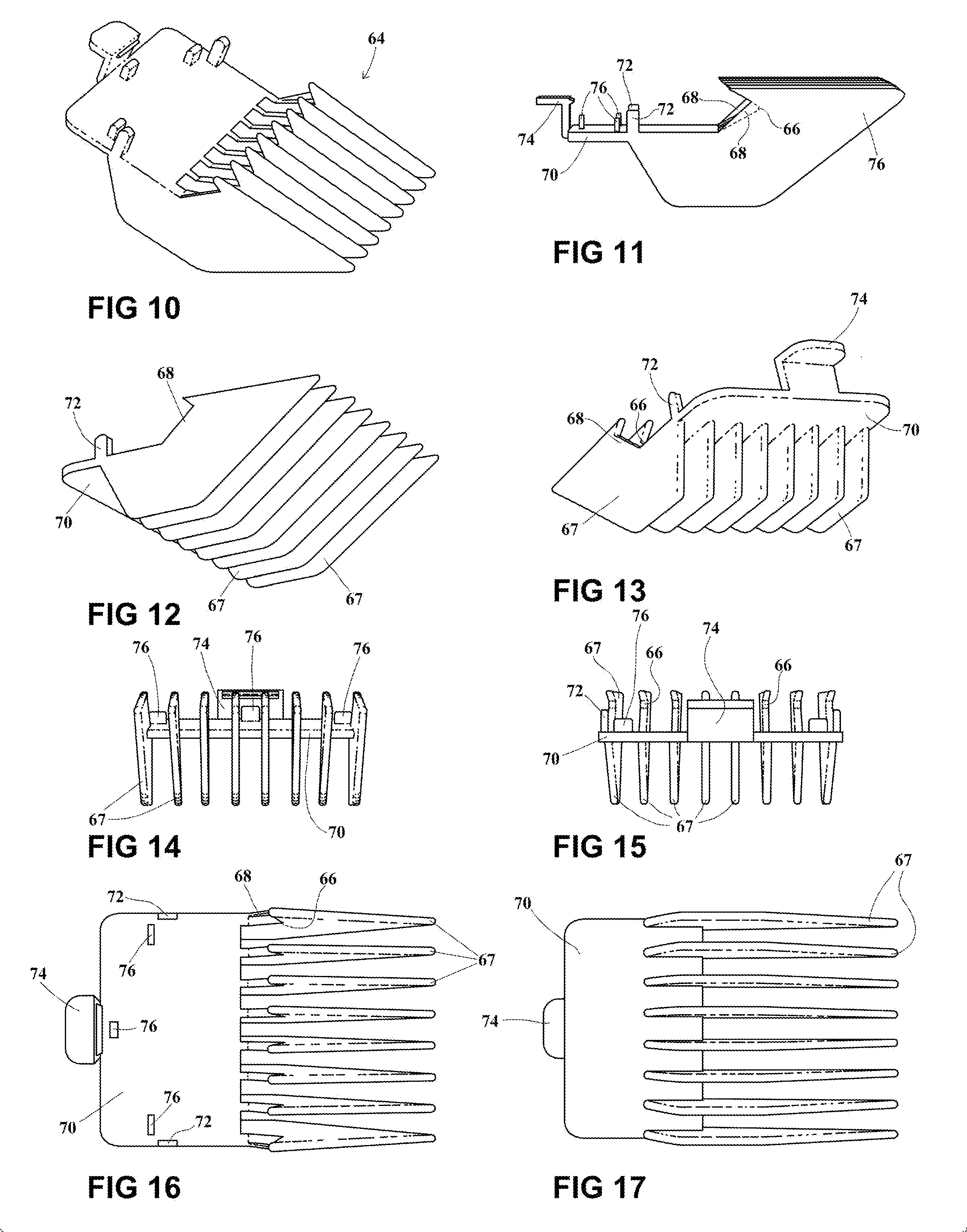Dummy hair clipper head incorporated for the attachment of guide combs
a hair clipper head and guide comb technology, which is applied in the direction of hair combs, hair cleaning, hair equipment, etc., can solve the problems of not being able to regulate the length of hair cut, the blade cannot get closer to the scalp than, and lacks this advantage, etc., to achieve simple and inexpensive manufacturing, lack of tools complexity, and the effect of simple and inexpensiv
- Summary
- Abstract
- Description
- Claims
- Application Information
AI Technical Summary
Benefits of technology
Problems solved by technology
Method used
Image
Examples
first embodiment
[0099]the invention is a comb organizer 78 and is shown in FIGS. 20 and 21. The organizer 78 consists of four adjacent dummy blades 80 shown separately in FIGS. 18 and 19.
[0100]FIGS. 18 and 19 show the dummy blade 80 above the stationary blade 50 to which it partially conforms. The dummy blade 80 includes a thin rectangle 82 which is 0.025 inches thick, and 1.8 inches by 0.75 inches, overlapping and bonded to a thick rectangle 84 which is 0.075 inches thick, and 1.8 inches by 1.2 inches. The rectangles overlap by 0.45 inches resulting in a combined rectangle 1.8 inches by 1.5 inches, which conforms to those dimensions of the blade 50.
[0101]The thin leading edge is 0.025 inches higher than the thick rear edge which also conforms to those dimensions of the stationary blade 50. The underside of the thick rectangle 84 is flat for more than 0.5 inches from the rear edge providing a suitable surface for the abutments 76, just as the rear region 60 does of the stationary blade 50 as descri...
second embodiment
[0107]FIGS. 22-26 show the invention which is the scissor comb 90. The scissor comb 90 includes a barber's scissor 92 with a single counter-sunk hole 94 drilled into one blade 1.5 inches from the tip. A screw 96 secures the scissor 92 to a dummy blade B 98. The dummy blade B 98 allows the attachment of the guide comb 64. The scissor comb 90 can then be pulled through hair and employed cutting the hair to a uniform thickness.
[0108]The dummy blade B 98 is shown from two angles in FIG. 22, from the side and in perspective. It is 1.8 inches wide, as is the stationary blade 50. It is 1.4 inches from its beveled leading edge to its rear edge, where the real stationary blade 50 is 1.5 inches. This shorter length is due to the novel means by which dummy blade B 98 engages the V shaped groove 66 which is indicated by dotted lines in FIG. 25. Rather than contacting the groove 66 at its vertex, as the stationary blade 50 does, it instead makes dual contact, an upper contact along its upper edg...
third embodiment
[0115]the present invention, the razor comb 106 is shown in FIGS. 27-30. Referring to FIG. 28 which is an exploded view of the four pieces of the razor comb 106 (other than the guide comb 64), the razor comb 106 consists of a handle 108, a top plate 110, a razor blade 112, and a base plate 114 which when fully assembled connect with the guide comb 64.
[0116]The razor 112 is held in position on the base plate 114 by two cylindrical protrusions 116 which are inserted into apertures 118 of said razor 112. The top plate 110 is then placed over the base plate 114 passing the threaded post 119 of the base plate 114 through the hole 122 of the top plate 110 and finally inserting the cylindrical protrusions 116 into corresponding cylindrical depressions (not shown) in the underside of the top plate 110. The handle 108, which has a threaded socket (not shown), is then threaded onto the post 119 and the four pieces are thereby secured together.
[0117]The top plate 110 and base plate 114 togethe...
PUM
 Login to View More
Login to View More Abstract
Description
Claims
Application Information
 Login to View More
Login to View More - R&D
- Intellectual Property
- Life Sciences
- Materials
- Tech Scout
- Unparalleled Data Quality
- Higher Quality Content
- 60% Fewer Hallucinations
Browse by: Latest US Patents, China's latest patents, Technical Efficacy Thesaurus, Application Domain, Technology Topic, Popular Technical Reports.
© 2025 PatSnap. All rights reserved.Legal|Privacy policy|Modern Slavery Act Transparency Statement|Sitemap|About US| Contact US: help@patsnap.com



